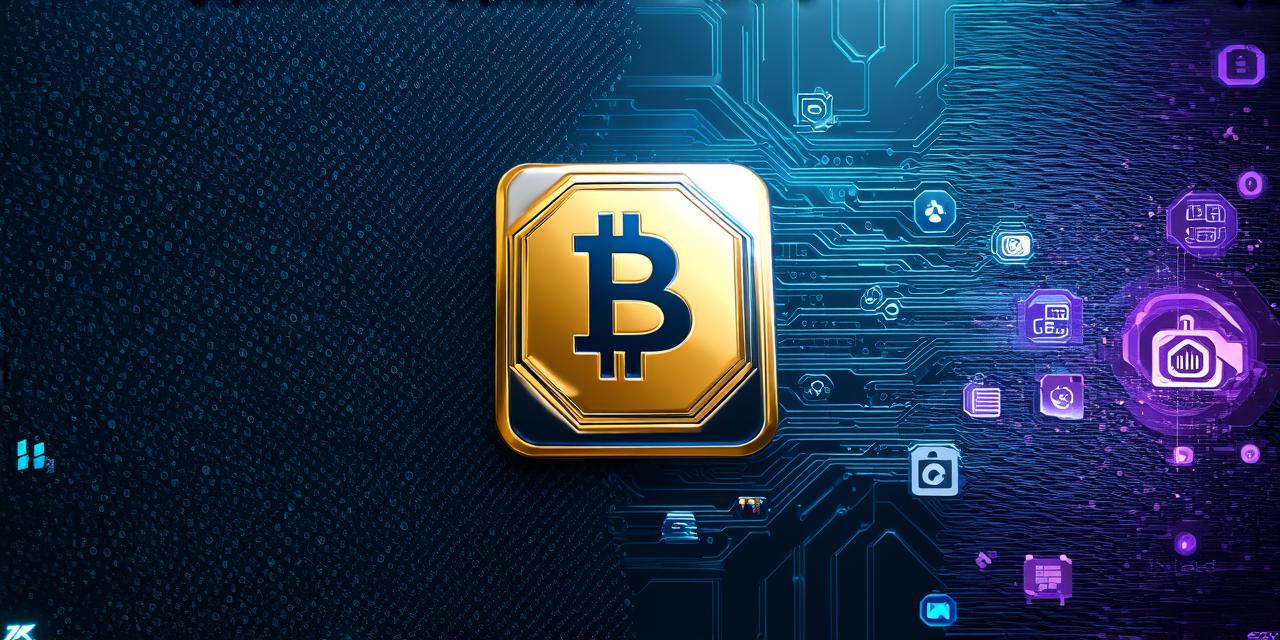Unlocking the Power of Smart Contracts: Understanding How Oracles Help Access Data on the Blockchain
As blockchain technology continues to evolve, smart contracts have emerged as an increasingly popular way to automate and streamline business processes. These self-executing contracts use code to enforce the terms of an agreement between buyers and sellers, eliminating intermediaries and increasing efficiency and transparency.
However, one challenge that smart contracts face is accessing reliable data on the blockchain. Traditional sources of data, such as centralized databases or APIs, may not be compatible with the decentralized and immutable nature of the blockchain. That’s where oracles come in – specialized tools that allow smart contracts to securely access external data sources and integrate them into the blockchain.
What are Oracles?
Oracles are tools that allow smart contracts to access external data sources, such as APIs, databases, or other blockchain networks. These data sources provide information that may not be available on the blockchain itself, but is essential for the smart contract to function properly.
Oracles work by establishing a secure connection between the smart contract and the external data source, using protocols such as OASIS or Chainlink to ensure data integrity and security. Once the connection is established, the smart contract can retrieve the necessary data and integrate it into its own logic, allowing it to make informed decisions based on real-time information.
Benefits of Using Oracles in Smart Contract Development
There are several benefits to using oracles in smart contract development:
- Increased Efficiency: By accessing external data sources, smart contracts can automate processes that would otherwise require manual intervention. This can save time and reduce the risk of errors or fraud.
- Improved Transparency: Oracles can provide real-time information about the state of a smart contract, allowing all parties involved to track progress and verify that the terms of the agreement are being met.
- Greater Flexibility: Oracles allow smart contracts to access a wide range of data sources, from financial data to weather reports or sensor readings. This flexibility can enable new applications and use cases for smart contracts in various industries.
- Enhanced Security: By integrating external data into a smart contract environment, oracles can help ensure that the data is secure and tamper-proof. This is particularly important when dealing with sensitive or confidential information.
Real-Life Examples of Oracles in Action
Oracles are being used in a variety of industries to enhance the functionality of smart contracts on the blockchain. Here are some examples:
- Finance: In the finance industry, oracles are being used to access real-time stock prices or market data, allowing smart contracts to automatically execute trades based on predefined conditions. This can help reduce the risk of errors or fraud and increase efficiency.
- Supply Chain Management: Oracles are also being used in supply chain management to track shipments and monitor inventory levels. By integrating this information into a smart contract, companies can automate processes and ensure that they are meeting their obligations to customers and suppliers.
- Healthcare: In the healthcare industry, oracles are being used to access patient data from electronic health records (EHRs), allowing smart contracts to automatically generate insurance claims or manage medical billing. This can help reduce administrative costs and improve accuracy.
- Energy: Oracles are also being used in the energy sector to monitor weather patterns and energy consumption levels, allowing smart contracts to automatically adjust energy usage based on demand and pricing. This can help optimize energy usage and reduce costs.
Challenges of Using Oracles in Smart Contract Development
While oracles offer many benefits for smart contract development, there are also some challenges to consider:
- Security: As with any system that integrates external data sources, security is a major concern when using oracles. It’s important to ensure that the data being accessed is secure and that the oracle itself is protected against attacks.
- Integration: Integrating oracles into a smart contract can be complex, particularly if the smart contract was not designed with external data sources in mind. This can require significant development effort and testing to ensure that everything works seamlessly.
- Cost: Oracles can be expensive to use, particularly if you need access to large amounts of data or if the data sources themselves have usage fees. It’s important to carefully consider the costs involved before deciding to use an oracle in your smart contract development project.
- Compatibility: Not all data sources may be compatible with the blockchain or with other smart contracts, which can limit their usefulness. It’s important to carefully vet any external data sources you plan to integrate into your smart contract to ensure that they are compatible and reliable.
FAQs
1. What is an oracle?
Oracles are tools that allow smart contracts to access external data sources, such as APIs, databases, or other blockchain networks. These data sources provide information that may not be available on the blockchain itself, but is essential for the smart contract to function properly.
2. How do oracles work?
Oracles work by establishing a secure connection between the smart contract and the external data source, using protocols such as OASIS or Chainlink to ensure data integrity and security. Once the connection is established, the smart contract can retrieve the necessary data and integrate it into its own logic.

3. What are some benefits of using oracles in smart contract development?
There are several benefits to using oracles in smart contract development:
- Increased Efficiency: By accessing external data sources, smart contracts can automate processes that would otherwise require manual intervention.
- Improved Transparency: Oracles can provide real-time information about the state of a smart contract, allowing all parties involved to track progress and verify that the terms of the agreement are being met.
- Greater Flexibility: Oracles allow smart contracts to access a wide range of data sources, from financial data to weather reports or sensor readings. This flexibility can enable new applications and use cases for smart contracts in various industries.
- Enhanced Security: By integrating external data into a smart contract environment, oracles can help ensure that the data is secure and tamper-proof. This is particularly important when dealing with sensitive or confidential information.
4. What are some challenges of using oracles in smart contract development?
While oracles offer many benefits for smart contract development, there are also some challenges to consider:
- Security concerns
- Integration issues
- Cost considerations
- Compatibility issues with external data sources
5. How can I choose the right oracle for my smart contract project?
When choosing an oracle for your smart contract project, it’s important to carefully consider factors such as the type of data you need to access, the reliability and security of the external data source, and the compatibility with your existing blockchain or smart contract environment. You may also want to consider the cost and development effort involved in integrating an oracle into your project.
